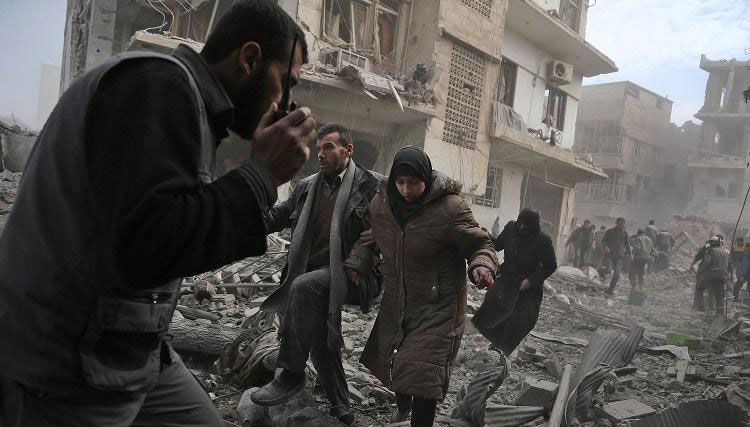Statement by High Representative/Vice-President Federica Mogherini and Commissioner for Humanitarian Aid and Crisis Management Christos Stylianides on the humanitarian situation in Eastern Ghouta and Idlib, Syria:
The humanitarian situation in parts of Syria, in particular in the De-Escalation Areas of Eastern Ghouta and Idlib, has deteriorated significantly over the past 8 weeks with hundreds of innocent victims, including many women and children.
There have been dozens of civilian deaths and hundreds of wounded in Eastern Ghouta yesterday alone. More than 300,000 civilians have been displaced in the northern Governorate of Idlib, with destruction of civilian infrastructure, such as hospitals.
Unhindered humanitarian access to civilians inside Syria and the protection of civilians and civilian infrastructure is a matter of urgency to prevent further loss of lives. To prevent further children and families, the most vulnerable, being killed. The international community should unite to stop this human suffering.
The European Union calls on all parties to the conflict, as well as the guarantors of the four De-Escalation Areas, to take all necessary measures to ensure the decrease of violence, the protection of the Syrian people by respecting International Humanitarian Law, and urgent humanitarian access. There is no military solution to the conflict, we call on all parties to seriously engage in the UN-led political process.
This was notably discussed yesterday by High Representative/Vice-President Federica Mogherini and a delegation of the Syria Negotiation Committee (SNC) led by its President, Mr Nasr Hariri, accompanied by women representatives. The need to urgently make progress on the political track under UN auspices and to maintain the international engagement to solve the political and humanitarian situation in Syria was recalled by all the participants. In this respect, the EU will host the second Brussels Conference on 24-25 April, using its convening power to maintain the focus of the international community on the Syria crisis and to see how to best support the UN-led political process in this difficult time.



